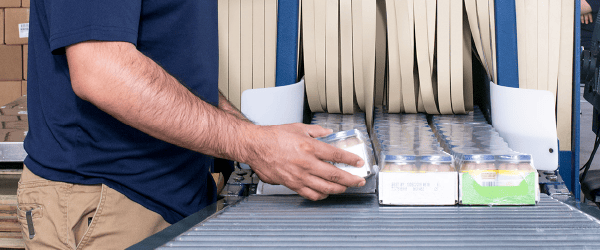Foreign material contamination can do a number on your bottom line—no matter how comprehensive your HACCP plan may be. Finding an efficient, cost-effective method that solves your product holds every time is critical to maximizing your ROI and reducing waste at the plant level.

Manufacturers often opt to internally rework their product in the face of foreign material contamination. In a recent blog post, we “covered the costs” of that option at a broad level. While that piece is by no means exhaustive, we believe it summarizes the key considerations for manufacturers well. If you haven’t already read that, we encourage you to do so!
When our team set out to build a way to help actually calculate the true cost of rework, we quickly discovered that any accurate calculator would have more lines than a long-form 1040 tax return! Instead, what we’ve done is compile a comprehensive list of questions that can help you assess your unique situation. These are questions our project managers use to understand how we add value for our customers every single day:
- Is your current product QA hold going to affect your ability to deliver product to your customers on-time? How will this impact your revenue and profits?
- If you can’t deliver product on time, what contractual penalties might you incur with your customer?
- Is your product perishable, and if so, how does it affect your ability to resolve your QA hold using a solution other than disposal? What does disposal cost you?
- Do you have the labor resources available to clear your hold in a timely fashion? If so, are you going to end up paying additional labor costs on top of normal production costs to rework your product internally?
- Do you have a dedicated rework team in-house? If so, would you be wasting resources not to use them?
- Do you have available equipment separate from your production line to inspect/rework product internally? If you don’t have separate equipment, do you have available production line time to inspect/rework product? How does that affect your costs?
- If you have to remake a new batch of product to meet your customer orders, do you have the materials on-hand to do so? Will you need to rush order additional ingredients or packaging supplies to replace held product?
Want to dive even deeper? Talk to one of our experts and we can help you determine the true cost of your internal rework.
These questions above, as exhaustive as they are, don’t cover the entire cost of internal rework. The ripple effects of product placed on hold due to foreign material contamination touch nearly every aspect of your operations—from filling orders for customers to sourcing ingredients.

Our bottom line is to protect yours. The best way to achieve that goal is by putting FlexXray’s third-party inspection and retrieval services to work. If you send us a test sample, we have inspection lines available now to put our customized, medical-grade machinery where our mouth is. To continue the conversation, talk to our team today!
